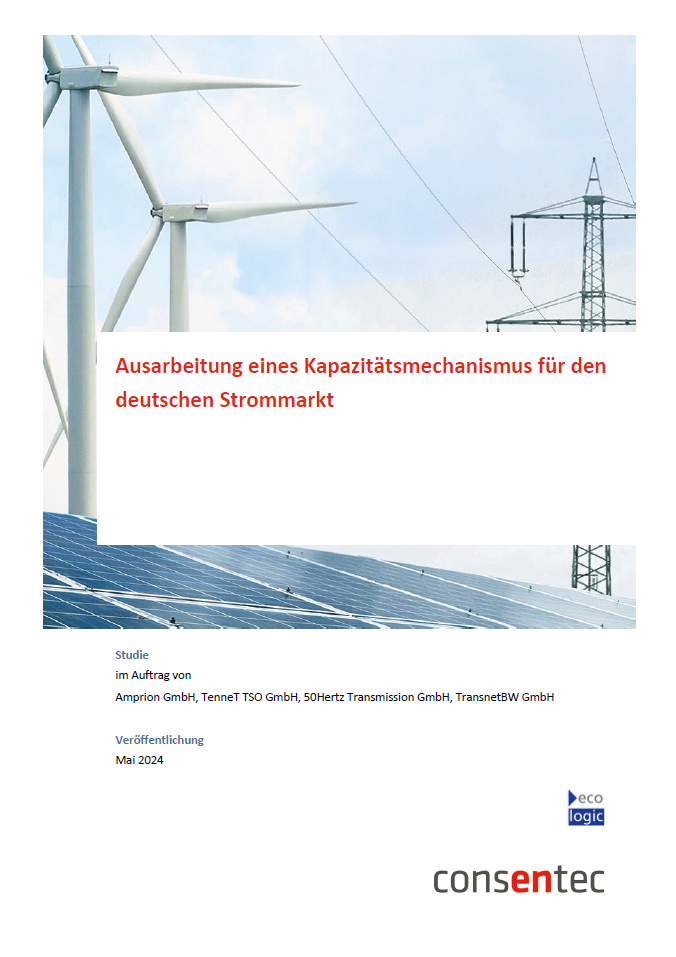The transition to renewable energies and persistent bottlenecks in the German transmission grid represent key challenges for the German electricity supply system in terms of the need for security of supply. A so-called capacity mechanism could be an important solution to this. On behalf of the four German transmission system operators (TSOs) Amprion GmbH, TenneT TSO GmbH, 50Hertz Transmission GmbH and TransnetBW GmbH, the foundations of a capacity mechanism for the German electricity market that is compatible with the European legal framework for the energy market and European state aid law are therefore to be developed.
In an interdisciplinary research team led by Consentec, the Ecologic Institute is responsible for examining energy law issues in the project. The project focuses on the following topics:
- Clarification of fundamental issues: Firstly, an overview of prototypical basic models and a legal analysis of the European framework for capacity mechanisms is provided. Systemic needs and legal requirements for a capacity mechanism in Germany are clarified, and the objectives and evaluation criteria of the possible basic models are specified. Mechanisms that incentivize the construction of new controllable generation capacities are also considered, whereby both system-wide and targeted support and reserve mechanisms are meant.
- Evaluation catalog: Evaluation criteria are developed to assess solution options. These include effectiveness in ensuring resource adequacy, effects on the efficiency of the overall system, support costs for consumers, synergies with other ancillary services, implementation costs and regulatory intensity and risks. Finally, from a legal perspective, the admissibility of the various options under state aid law and the requirements of the Internal Electricity Market Directive are key issues.
- Concrete proposal: In a final step, the possible concrete design of the capacity mechanism is discussed. Comparisons are drawn with existing capacity mechanisms, taking particular account of state aid approvals by the EU Commission. A concrete implementation recommendation is developed, whereby the question of the feasibility of the proposal under state aid law and its compatibility with the European legal framework is specifically considered.



